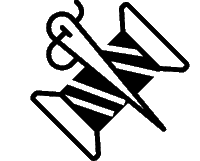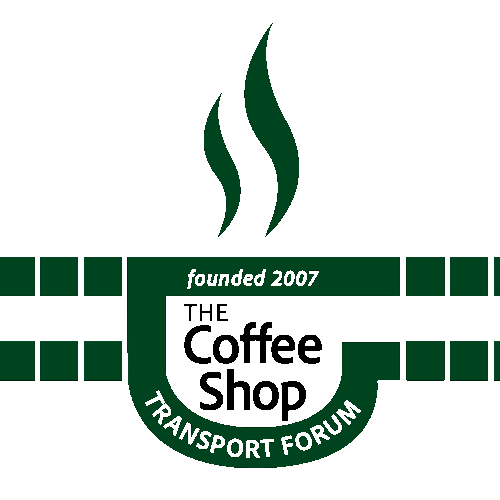| Re: OTD - 1st February (2003) - Space Shuttle Columbia breaks up killing 7 Posted by Chris from Nailsea at 03:14, 1st February 2026 |     |
There is some interesting information in the above posts, so I'm giving this topic a gentle 'bump' on the sad anniversary.
| Re: OTD - 1st February (2003) - Space Shuttle Columbia breaks up killing 7 Posted by broadgage at 10:15, 24th November 2022 |     |
The link in the above post seems to have vanished.
Here is a new link to the vintage film about Australian railways.https://www.youtube.com/watch?v=usi4LM_iVuw
| Re: OTD - 1st February (2003) - Space Shuttle Columbia breaks up killing 7 Posted by broadgage at 14:53, 23rd February 2022 |     |
This vintage film about Australian railways features a mobile mother and baby clinic on the train.
Gas lights may be seen about 18 minutes in. Not lit, but perhaps still in working order.
And a bit O/T but vintage technology, the parcels being conveyed on the train included a Tilley paraffin clothes iron, just before the view of the gas lights.
| Re: OTD - 1st February (2003) - Space Shuttle Columbia breaks up killing 7 Posted by grahame at 07:14, 4th February 2022 |     |
Pedant alert, gas was not used regularly for heating of railway carriages.
[snip]
Gas WAS used for lighting on trains, and was rather a fire risk under normal conditions and a very severe fire risk in case of accident.
[snip]
Gas WAS used for lighting on trains, and was rather a fire risk under normal conditions and a very severe fire risk in case of accident.
Many thanks for that correction and all the extra data - much appreciated. I have gone back to the original article and amended it to give the right information, as these "on this day" articles just might end up being highlighted again on this day in later years too and become "reference material", a book, or a video game!
| Re: OTD - 1st February (2003) - Space Shuttle Columbia breaks up killing 7 Posted by broadgage at 06:41, 4th February 2022 |     |
Pedant alert, gas was not used regularly for heating of railway carriages. Heating was generally steam from a steam locomotive, or an early diesel locomotive fitted with an oil burning steam heat boiler.
Waste heat from the engines is sometimes used on DMUs. Ye olde Hampshire units had engine derived heat in the coach with the engine and electric heat in the other vehicles.
Electric heat is now the norm.
Gas WAS used for lighting on trains, and was rather a fire risk under normal conditions and a very severe fire risk in case of accident.
In an accident it was almost inevitable that the gas pipes would be broken and the gas ignited, resulting in a general conflagration. Many victims who survived collision or derailment, burnt to death before they could be rescued. In one particularly horrific accident, many troops burnt to death in a train fire. It was reported that many men trapped in the burning wreckage begged for their officers to shoot them. Quintinshill I believe, during the first war, the death toll was over 200 but was never accurately established as the regimental records were destroyed in the fire.
Gas lighting did not cause the accident, it was caused by human error on the part of the signalmen. Gas lighting did however substantially increase the death toll.
That particular disaster lead to calls for electric lighting to be a requirement on all trains, and this was eventually achieved.
At least three different gas lighting systems were used, "oil gas" produced by the patented process of a Mr Pintsch, acetylene, and propane. All contained in metal tanks or cylinders stored under the coach.
A few very early systems used town gas contained in a canvas bag on the roof ! VERY early underground trains used this. Steam locomotive, in a tunnel, and flammable gas stored in bag on the roof, what could possibly go wrong.
I traveled on a train with working gas lights in about 1966. Gas lighting was IIRC meant to be banned by then, but BR still had a few gas lit coaches that were restricted to daylight use only. The train was late and darkness fell and the guard lit the gas lights !
| OTD - 1st February (2003) - Space Shuttle Columbia breaks up killing 7 Posted by grahame at 23:00, 31st January 2022 |     |
From Space.com
The Columbia disaster occurred On Feb. 1, 2003, when NASA’s space shuttle Columbia broke up as it returned to Earth, killing the seven astronauts on board. NASA suspended space shuttle flights for more than two years as it investigated the cause of the Columbia disaster.
An investigation board determined that a large piece of foam fell from the shuttle's external tank and breached the spacecraft wing. This problem with foam had been known for years, and NASA came under intense scrutiny in Congress and in the media for allowing the situation to continue.
An investigation board determined that a large piece of foam fell from the shuttle's external tank and breached the spacecraft wing. This problem with foam had been known for years, and NASA came under intense scrutiny in Congress and in the media for allowing the situation to continue.
See also https://en.wikipedia.org/wiki/Space_Shuttle_Columbia_disaster
Not a railway story, but a common transport thread that moving around has its risks (and for the writer of "On this day" things that go wrong are remembered by their day and month and provide easy material on otherwise quiet days).
But in history there's always been a common thread where problems are known and issues observed, but minimal attention is paid to them and lessons are not learned until there's a really spectacular accident. Take a look (on rail) at absolute block working, at gas
Whilst there are still repeats to this day, I celebrate the RAIB - Rail Accident Investigation Branch - who help keep them to a minimum. I really don't want too many more "easy" days where there's a big accident to report.
Edit - correction to use of gas in trains










